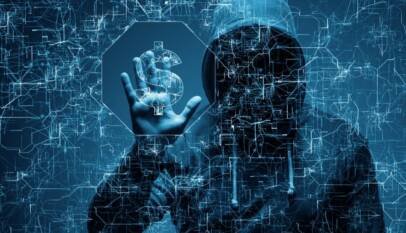If it were measured as a country, then cybercrime — which is predicted to inflict damages totaling $6 trillion USD globally in 2021 — would be the world’s third-largest economy after the U.S. and China.
Cybersecurity Ventures expects global cybercrime costs to grow by 15 percent per year over the next five years, reaching $10.5 trillion USD annually by 2025, up from $3 trillion USD in 2015. This represents the greatest transfer of economic wealth in history, risks the incentives for innovation and investment, is exponentially larger than the damage inflicted from natural disasters in a year, and will be more profitable than the global trade of all major illegal drugs combined.
The damage cost estimation is based on historical cybercrime figures including recent year-over-year growth, a dramatic increase in hostile nation-state sponsored and organized crime gang hacking activities, and a cyberattack surface which will be an order of magnitude greater in 2025 than it is today.
Cybercrime costs include damage and destruction of data, stolen money, lost productivity, theft of intellectual property, theft of personal and financial data, embezzlement, fraud, post-attack disruption to the normal course of business, forensic investigation, restoration and deletion of hacked data and systems, and reputational harm.

CYBERCRIME HITS HOME
The United States, the world’s largest economy with a nominal GDP of nearly $21.5 trillion, constitutes one-fourth of the world economy, according to data from Nasdaq.
Cybercrime has hit the U.S. so hard that in 2018 a supervisory special agent with the FBI who investigates cyber intrusions told The Wall Street Journal that every American citizen should expect that all of their data (personally identifiable information) has been stolen and is on the dark web — a part of the deep web — which is intentionally hidden and used to conceal and promote heinous activities. Some estimates put the size of the deep web (which is not indexed or accessible by search engines) at as much as 5,000 times larger than the surface web, and growing at a rate that defies quantification.
The dark web is also where cybercriminals buy and sell malware, exploit kits, and cyberattack services, which they use to strike victims — including businesses, governments, utilities, and essential service providers on U.S. soil.
A cyberattack could potentially disable the economy of a city, state or our entire country.
In his 2016 New York Times bestseller — Lights Out: A Cyberattack, A Nation Unprepared, Surviving the Aftermath — Ted Koppel reveals that a major cyberattack on America’s power grid is not only possible but likely, that it would be devastating, and that the U.S. is shockingly unprepared.
Billionaire businessman and philanthropist Warren Buffet calls cybercrime…
15 Cybersecurity Statistics To Diagnose The Ailing Healthcare Industry
Healthcare is in poor shape when it comes to cybersecurity. Cybersecurity Ventures predict…













